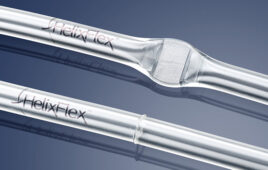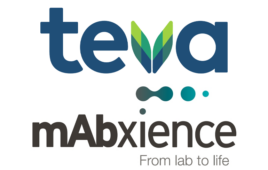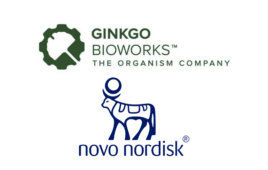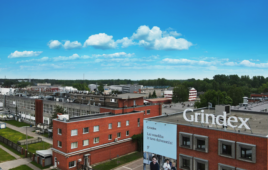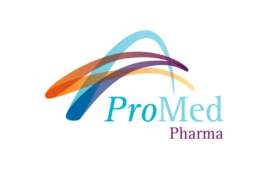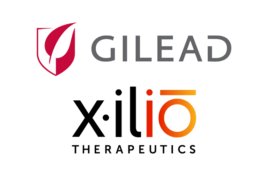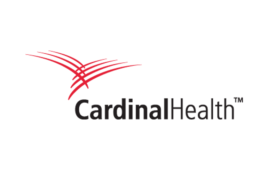Fujifilm Diosynth Biotechnologies is investing $1.2 billion to expand its biopharmaceutical manufacturing facility in Holly Springs, N.C. Fujifilm initially invested $2 billion in the Holly Springs operation in 2021. The company said the investment made it one of North America’s largest end-to-end biopharmaceutical manufacturing facilities. The new expansion will create 680 new jobs in the…
Kintara Therapeutics, TuHURA to merge in all-stock transaction
Kintara Therapeutics and TuHURA recently announced they entered into a definitive merger agreement. The agreement is an all-stock transaction that will form a company with the expertise and resources needed to advance a risk-diversified late-stage oncology pipeline. The transaction is expected to close in Q3 2024. Kintara Therapeutics is a biopharmaceutical company investigating REM-001 in…
Freudenberg launches TPE tubing for biopharma
NEWS RELEASE: FREUDENBERG Launches New TPE Tubing for Biopharma Freudenberg, a global manufacturer of medical and pharmaceutical tubing, components, and devices, has introduced HelixFlex™, a high purity thermoplastic elastomer TPE tubing designed for use in biopharmaceutical fluid transfer applications. This is an expanded offering from Freudenberg, adding to its existing biopharma product portfolio of silicone…
Teva, mAbxience sign strategic licensing agreement for oncology biosimilar candidate
Teva Pharmaceuticals and mAbxience recently announced a strategic licensing agreement for a biosimiliar candidate that is in development for treating multiple oncology indications. The licensing agreement covers multiple global markets, including Europe and the U.S., expanding mAbxience’s global expansion strategy. The new partnership also supports Teva’s “Pivot to Growth” strategy that will expand its biosimiliar…
Novo Nordisk and Ginkgo Bioworks extend manufacturing, R&D partnership
Ginkgo Bioworks today announced it expanded its strategic partnership with Novo Nordisk to manufacture medicines for chronic diseases. Under the framework agreement, the partnership is slated to run over five years. Ginkgo Bioworks develops a platform for cell programming and biosecurity, while Novo Nordisk develops a series of medications for chronic conditions, including its Wegovy…
Pharmaceutical manufacturer Grindeks opens 28 global subsidiaries
Latvian pharmaceutical manufacturing company Grindeks recently announced it opened 28 new subsidiaries in Europe to develop new products. Grindeks provides a full product lifecycle, including research, development, pharmacovigilance, manufacturing, and sales of original products, generic drugs and active pharmaceutical ingredients. It specializes in cardiology, central nervous system, oncology, diabetes and dermatology. With the new expanded…
Merck initiates Phase 3 trial to assess MK-1084 in combination with Keytruda for certain lung cancers
Merck recently announced it initiated a Phase 3 clinical trial evaluating MK-1084 in combination with Keytruda for treating patients with metastatic non-small cell lung cancer (NSCLC). The Rahway, N.J.-based company is evaluating MK-1084, an investigational oral selective KRAS G12C inhibitor, in combination with Keytruda to treat patients with NSCLC whose tumors have KRAS G12C mutations…
ProMed Pharma acquires SpineThera’s manufacturing facilities, has option to license IP
ProMed Pharma this week announced it acquired SpineThera’s manufacturing capabilities with the option to license intellectual property. Under the terms of the acquisition, ProMed Pharma has the option to license SpineThera’s microsphere intellectual property, which it could sublicense to ProMed Pharma’s customers. The Plymouth, Minnesota-based contract manufacturer will also add biodegradable microparticle development and manufacturing…
Gilead, Xilio sign license agreement for Xilio tumor-activated immuno-oncology therapy
Gilead and Xilio recently announced an exclusive license agreement to develop and commercialize Xilio’s XTX301, a Phase 1 tumor-activated IL-12 program. Waltham, Massachusetts-based Xilio Therapeutics is a clinical-stage biotechnology company that is developing tumor-activated immuno-oncology therapies. It is using a tumor-activated platform to build tumor-activated molecules, including antibodies, cytokines, bispecifics and cell engagers. Each of…
Cardinal Health starts construction on new pharmaceutical distribution center
Cardinal Health (NYSE:CAH) this week announced it began construction on its new pharmaceutical distribution center in Columbus, Ohio. The new 350,000 sq ft. logistics center will serve as a centralized replenishment center for the distribution of over-the-counter consumer health products to support the company’s pharmaceutical business. Dublin, Ohio-based Cardinal Health’s Consumer Health Logistics Center will…



